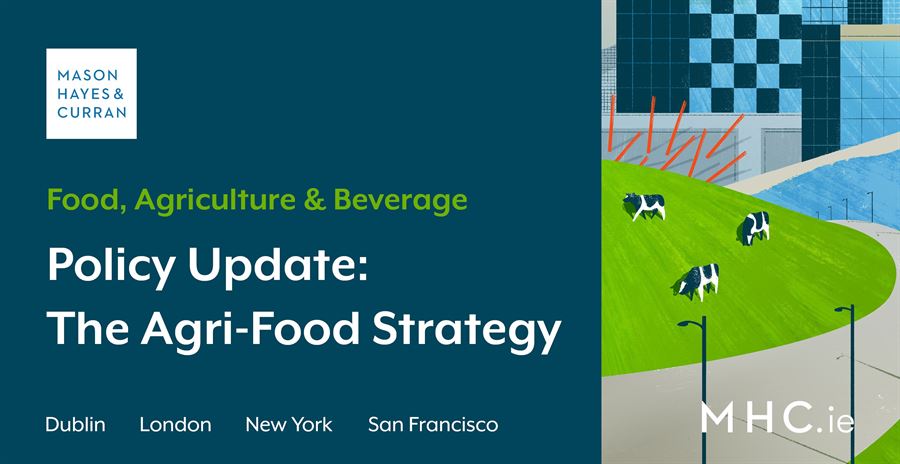
Public consultations have opened on the draft Agri-Food Strategy 2030, a plan that follows on from Harvest 2020 and Food Wise 2025, and which seeks to position Ireland as an international leader in sustainable food systems. Submissions are also being sought on a Strategic Environmental Assessment (SEA) and an Appropriate Assessment (AA) that have been prepared independently to determine the effects on the environment of implementing the Strategy.
Forming part of wider plans designed to achieve the goal of carbon neutrality for the country by 2050, the Strategy seeks to provide tangible objectives that will provide for the increasing role of the agricultural sector in achieving the country’s climate action goals. However, the work done to develop the existing draft Strategy has exposed sharp divisions between environmental groups and the agricultural sector on how this goal can be realised, and the impact that the Strategy will have on producers.
Missions, Goals and Actions
The draft Strategy seeks to realise a vision of Ireland as a global leader of innovation for sustainable food and agriculture systems by setting out four high-level ‘Missions’, which are then divided into various ‘Goals’ supported by more specific ‘Actions’.
- Mission 1: A Climate Smart, Environmentally Sustainable Agri-Food Sector
This Mission targets a climate-neutral food system by 2050 by setting various concrete objectives in a variety of areas such as emissions, water quality, biodiversity and food waste. These goals can also be set against the backdrop of the forthcoming Climate Action Act which will provide for a reduction in greenhouse gas emissions of 51% by 2030.
- Mission 2: Viable and Resilient Primary Producers with Enhanced Wellbeing
This Mission seeks to encourage premiumisation of output and diversification of activity and income streams for primary producers while also achieving a more equitable distribution of value across the food supply chain.
- Mission 3: Food that is Safe, Nutritious, Trusted and Valued at Home and Abroad
This Mission is aimed at enhancing consumer trust and awareness around the value of safe and ethical food production. This will include a continuing focus on developing export markets, with a target of agri-food exports reaching €21 billion by 2030. Irish food and drink exports currently stand at €13 billion despite Covid-19 disruptions.
- Mission 4: An Innovative, Competitive and Resilient Sector, driven by Technology and Talent
This Mission focusses on fostering continuing innovation and resilience along the food supply chain and calls for the development of a strategy for the agri-food sector on education, skills and talent attraction and retention.
Faultlines
Given the importance of the Strategy to both the agriculture sector and environmental groups, the preparation of the existing draft has highlighted the difficulty in reaching consensus on how an agri-food sector that is environmentally sustainable in the long term, and economically sustainable for producers in the near to medium term, can actually be made real. Indeed, a stark reminder of the difficulty in resolving these goals came in the form of the withdrawal of the representative of various environmental groups from the Strategy Committee earlier in the year. Notwithstanding this setback, various organisations that work hand in hand with farmers to encourage environmental knowledge transfer such as the Environmental Protection Agency (EPA) and Teagasc remain heavily involved in the drafting process.
Conclusion
As work continues to finalise the Strategy, it is likely that the differing perspectives highlighted during earlier stages of its development will also manifest in submissions from the public. However, there is broad agreement that the Strategy will play a pivotal role in the evolution of this central sector of the larger economy over the next decade, and that contributing to the country’s sustainability targets in this area will require carefully planned but nonetheless decisive action. The outcome of the public consultation process will therefore be monitored closely by all those with an interest in the future of the sector.
For more information, contact a member of our Food, Agriculture & Beverage or Product Regulation & Consumer Law teams.
The content of this article is provided for information purposes only and does not constitute legal or other advice.
Share this:




